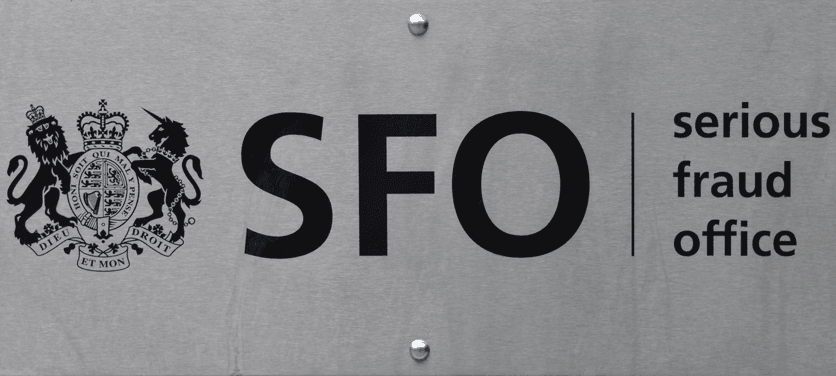The Serious Fraud Office (SFO) has brought the first set of charges under the Bribery Act 2010 against a UK company allegedly involved in a £23 million bio-fuel investment fraud. We discuss the white collar crime of ‘Making and Accepting a Financial Advantage’ contrary to the Bribery Act.
White Collar Crime: The Bribery Act 2010
The company being investigated is suspected of the fraudulent promotion and selling of “bio fuel” investment products to UK investors. An SFO spokesperson said:
“The Serious Fraud Office is investigating the activities of Sustainable Agroenergy Plc and Sustainable Wealth Investments UK Ltd and associated companies in connection with selling ‘bio-fuel’ investment products involving Jatropha tree plantations in South-East Asia.”
The value of the alleged fraud is approximately £23 million. A total of 1,500 investors could lose out as a result of the collapse of investment firms which invested heavily in bio-fuel. The alleged fraudsters have now been charged with the offences of ‘making and accepting a financial advantage‘ contrary to sections 1 and 2 of the Bribery Act 2010.
The SFO confirmed that those connected with the fraud will appear before Westminster Magistrates Court on 23 September 2013.
What is ‘Bribery’? (Making and Accepting a Financial Advantage)
The criminal act of bribery is set out in Section 1 of the Bribery Act 2010. The act of bribery is committed when a person either:
- gives or promises to give a financial or other advantage to another individual in exchange for improperly performing a relevant function or activity (or reward a person for the improper performance of such a function or activity); or
- offers, promises or gives a financial or other advantage to another person, and that person knows or believes that the acceptance of the advantage would itself constitute the improper performance of a relevant function or activity.
Section 2 of the Bribery Act 2010 covers the offence of being bribed which is defined as: requesting, accepting or agreeing to accept such an advantage, in exchange for improperly performing such a function or activity; or agreeing to receive a financial or other advantage, with the agreement or acceptance constituting the improper performance of a relevant function or activity.
An individual who is found guilty of an offence under section 1 or section 2 of the Bribery Act 2010 could face imprisonment for either a term not exceeding six months, or for a term not exceeding 10 years (depending on the seriousness of the offence). Those found guilty under section 1 or section 2 may also face a substantial fine.
Section 7 of the Bribery Act 2010: Corporate Liability?
There have been calls for more charges to be brought under section 7(1) of the Bribery Act 2010 against commercial organisations for ‘failures to prevent bribery’. The suggestion is that commercial organisations should be fined for turning a blind eye to acts of bribery by those connected or associated with the company. However, under section 7(2) of the Bribery Act 2010, it is a statutory defence to demonstrate that the company ‘implemented adequate procedures designed to prevent a person committing bribery‘.
This means that provided the company demonstrates it has adequate procedures in place to combat bribery, there is a high possibility that the company will escape liability. Nevertheless, many commentators believe that the ball is now rolling and that we may not have to wait too much longer for the first Section 7 case.
Will there now be more Bribery Act 2010 Prosecutions?
The first SFO case under the Bribery Act 2010 will not be easy to prove as key terms under the Act such as “adequate procedures,” “associated persons,” or “foreign public official” have not yet been defined by the Court.
Nevertheless, this case provides a reminder that the Act is not limited to acts of bribery overseas and that now UK company directors, members of company boards, and financial advisers can be held accountable for their actions under the Bribery Act 2010. This case demonstrates that the SFO are cracking down on acts of bribery, with particular emphasis on senior officers and directors of companies.
